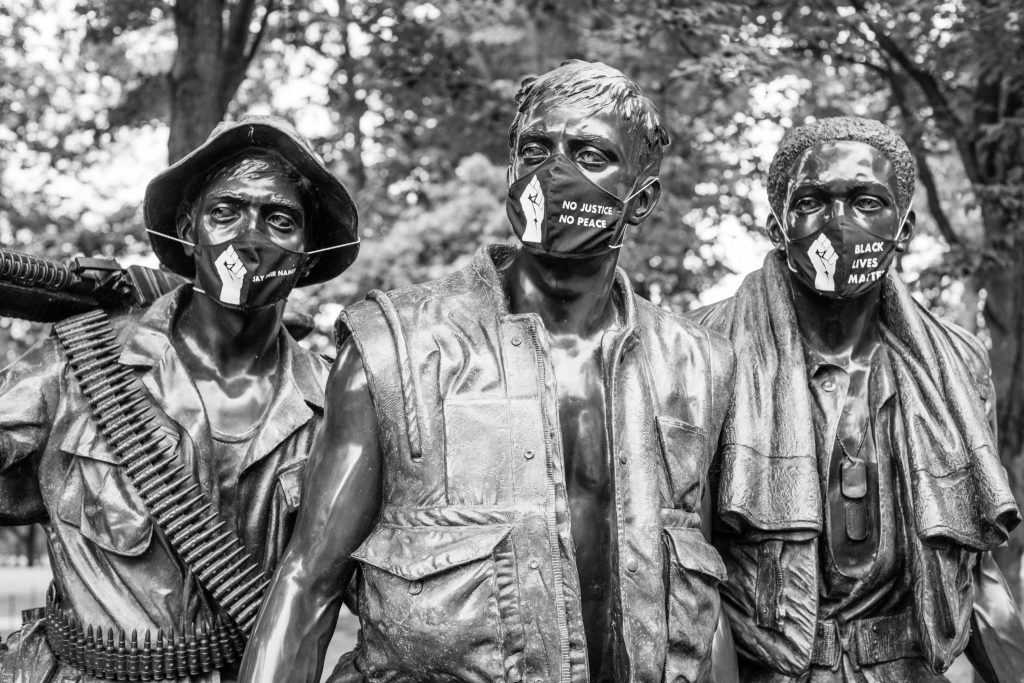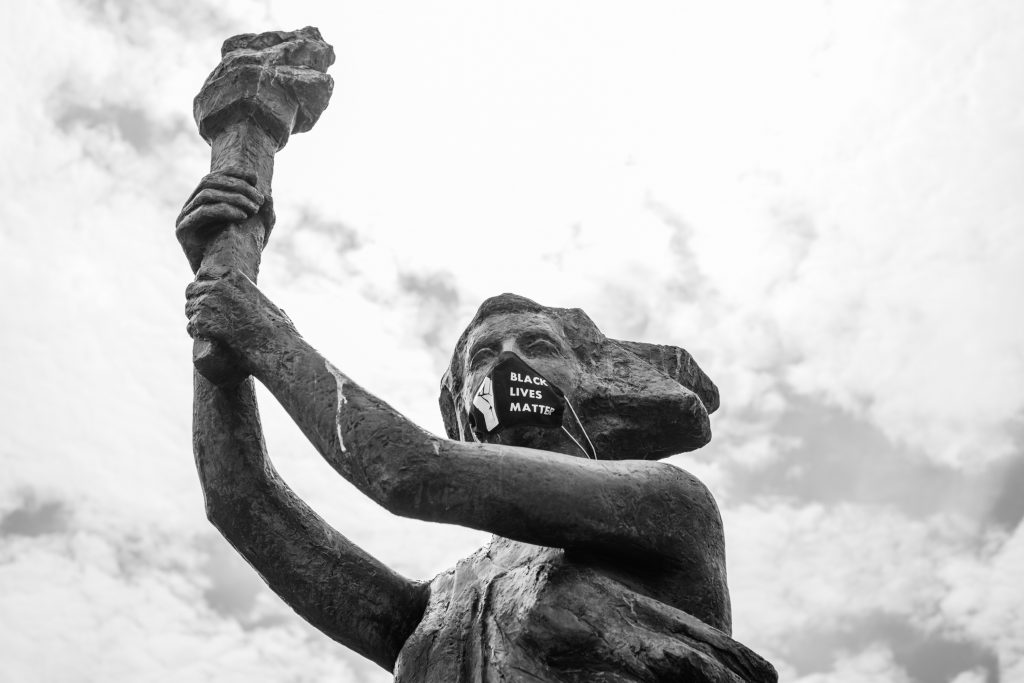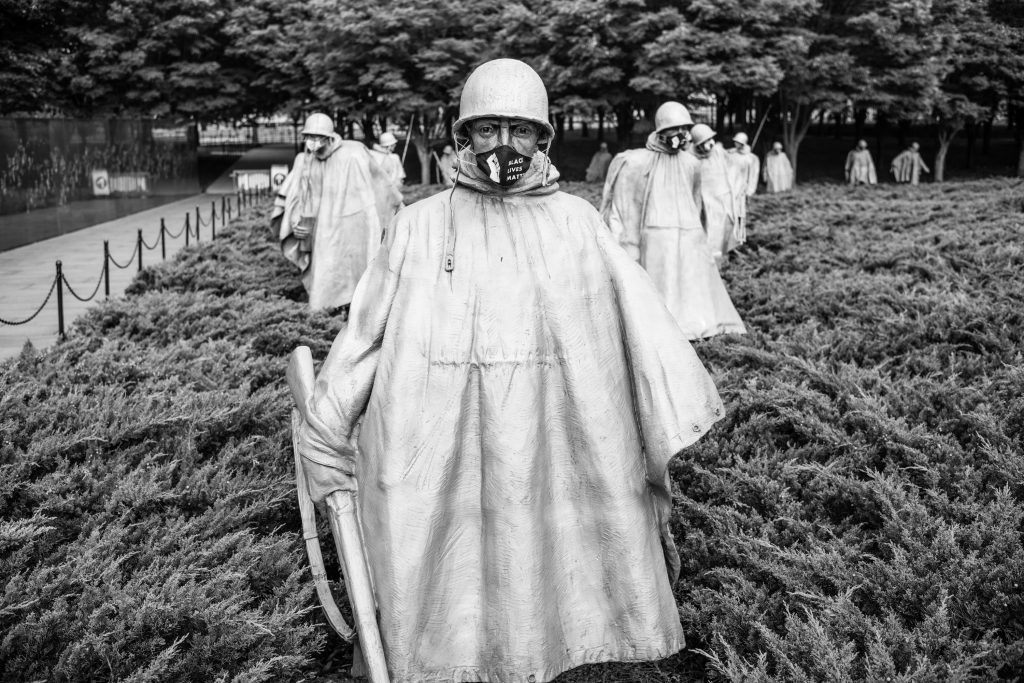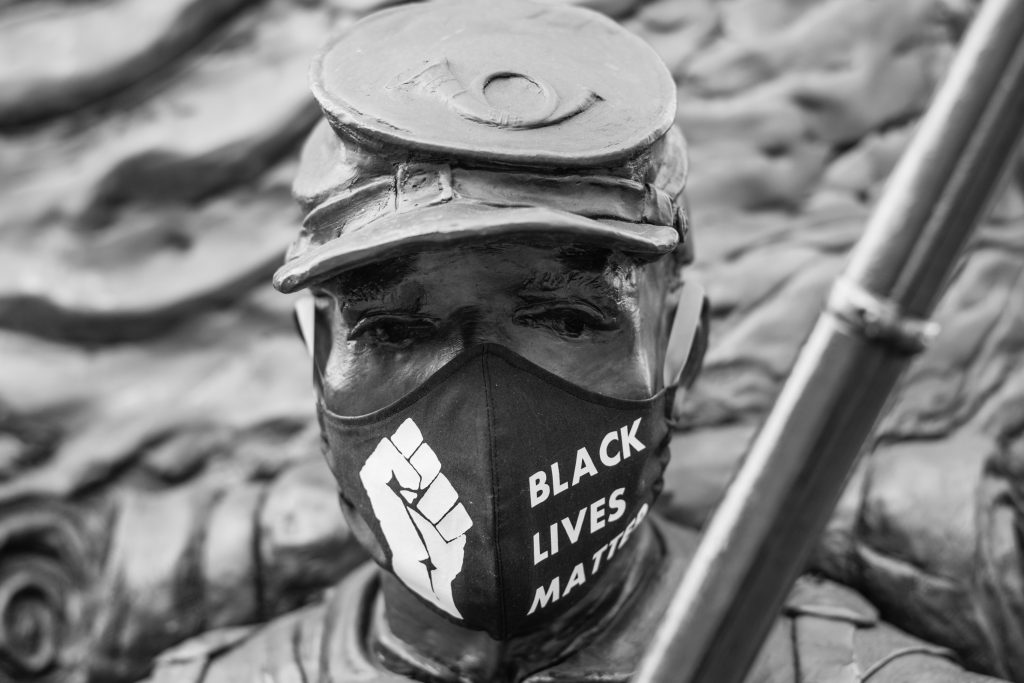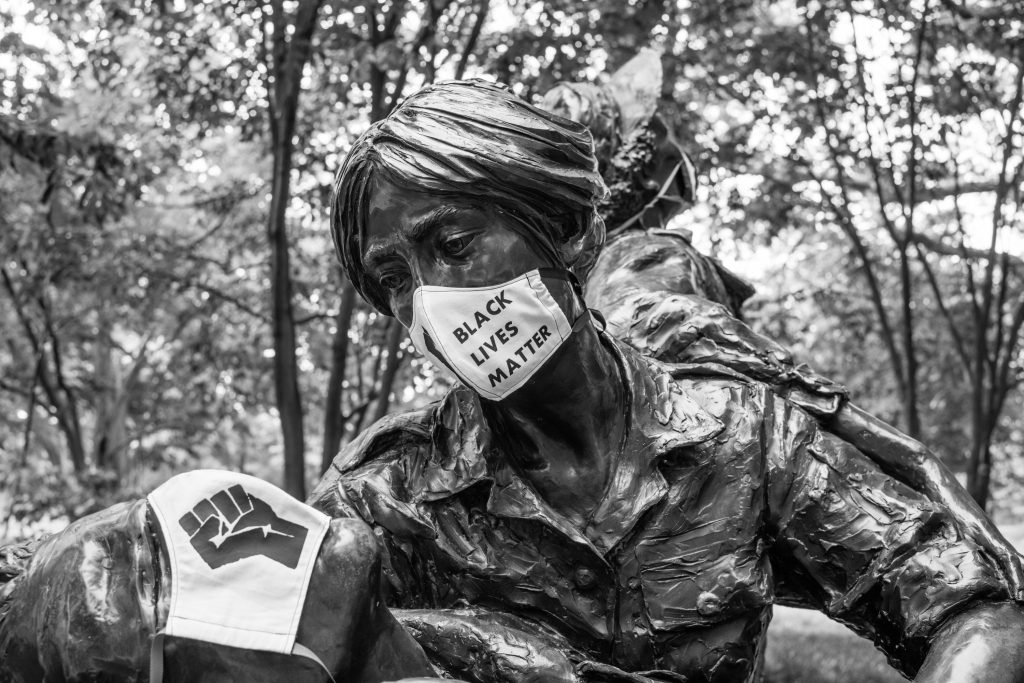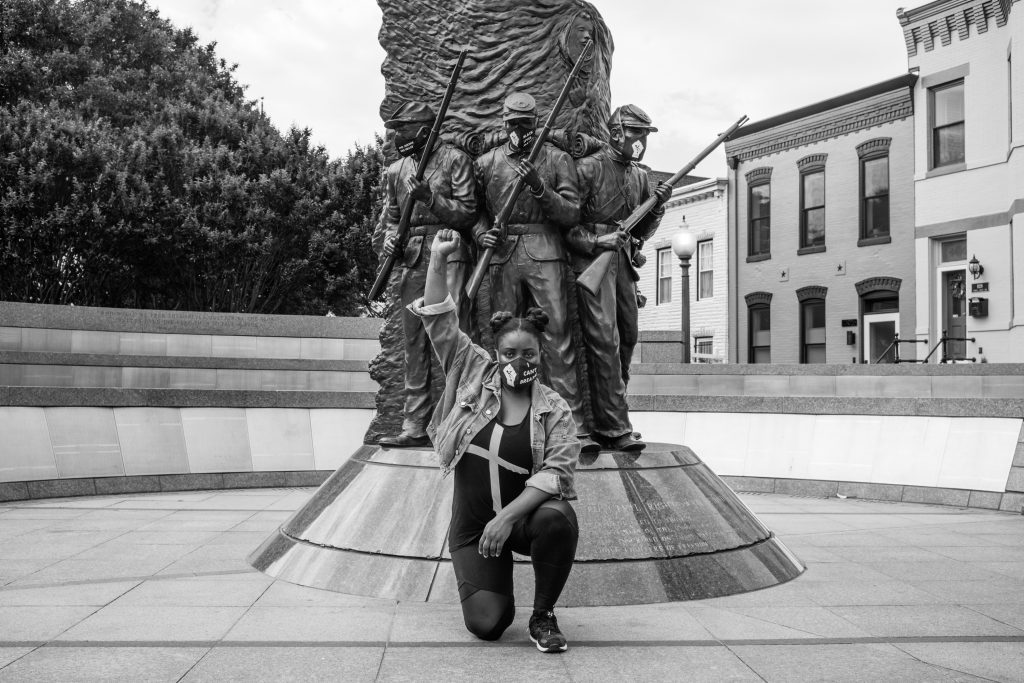In this Featured Member series, AATA celebrates the work of our members. During the coronavirus pandemic, we are inviting members to share their experiences about how their professional and personal lives have changed.
August 13, 2020
What has changed (or remained the same) in your job during the COVID-19 global crisis?
My job as a community art therapist, aside from moving to telehealth, has remained the same.
In what ways have your clients been impacted by COVID-19? Have you been able to continue care? How are you managing your own stress related to their experiences?
As I work in community therapy where I usually bring services to my clients, this had changed drastically with most of my clients being home and engaging in therapy via telehealth. I have found it challenging as an art therapist to provide a creative space for my clients and have had to really think outside of the box. I also have to consider what materials are available to my clients to incorporate art within their session. One way I circumvented this issue was creating art therapy care packages with the basic materials for a majority of my child clients which we then used during our sessions. I have managed my own stress by limiting the sessions I have a day and allocating “me time” in my weekly process. I find being out in nature away from home and my “work space” really helps me destress from taking on their experiences.
Since the killing of George Floyd, the topic of race has once again been brought to the forefront of national dialogue. How have race related issues, social justice, and racism informed or impacted your work as an art therapist?
As an art therapist of color this situation had a huge impact on me as well as many of my clients. I found it hard at times to be 100% there for my clients which told me I needed the time and space to process what I was going through to be able to then help my clients navigate what they were going through. After taking a week off to process and create art, I was able to get back to supporting my clients. I’ve often felt for myself and for my clients the need to speak out and advocate for their social rights and this incident set a brighter light on this need.
In what ways has your living or work space changed?
I am currently doing telehealth from home since social distancing began in March. It has been hard to separate work space from home space due to this but find if I designate an area of my home to just work it is easier to manage.
How do you view your role as an art therapist or student during COVID-19?
As I work a lot with children I have found that I play a big role in normalizing things for them. Helping them understand what’s going on and maintaining a regular schedule with them weekly has helped many with the transitions of being quarantined at home. While it has been hard to be “hands on” I have found little tricks here and there to engage even my littlest clients.
Is there anything else you would like to share with the community during these uncertain times?
During the week I took off to process race matters I felt the need to go back to what I know and create which led me to creating the Black Lives Matter masks and brainstorming about putting them on statues around DC. With the help of others in locating some statues and teaming up with a local photographer I was able to bring my vision to fruition. This helped me process what was happening within the country as well as helped me get my voice out there the best way I knew how. The “Silent Protest” project commenced on June 4th and is ongoing. I used the masked statues as a way to raise about $2000 to donate to the Black Lives Matter movement and The Bail Project.
“Silent Protest” by Alby Gyimah-Boadi. Photography, Vinyl, Textiles. June 19, 2020.
Artist Statement: “The evolution of how I processed the death of George Floyd and the rising racial tensions in America turned into my idea of a silent protest. Getting my voice heard the best way I know how: which is creating.”
Alberta (Alby) Gyimah-Boadi, MA, ATR-P, LGPC
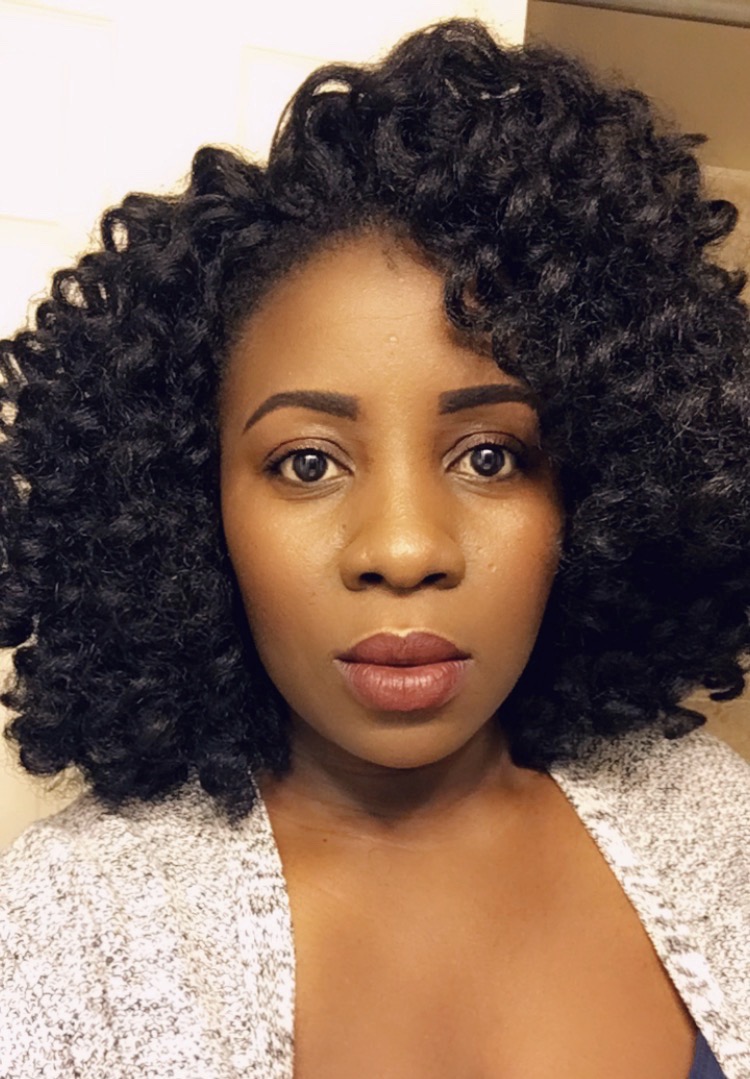 I currently work with a variety of individuals using my art therapy skills in community therapy. I have also worked with Alzheimers and dementia clients at a senior living community using art therapy to design activities to enrich their lives. I have had over two years of experience working as an art therapy intern in multiple locations and with mixed populations.
I currently work with a variety of individuals using my art therapy skills in community therapy. I have also worked with Alzheimers and dementia clients at a senior living community using art therapy to design activities to enrich their lives. I have had over two years of experience working as an art therapy intern in multiple locations and with mixed populations.
In summer of 2017 I participated in a study abroad program working with homeless men suffering from mental health issues and at a primary school for underprivileged children. In January 2018, I went back to Ghana and implemented an art therapy program with 3 children on the autism spectrum at an inclusion school as part of my final thesis paper. I have run workshops over the last four years using art therapy as a way to facilitate civic dialogue in politically charged times. In December of 2018 I was the first art therapist to join the State Department’s program Art Envoy in Nigeria and with the help of the local US Embassy in Abuja, devised a program to work with different communities in Nigeria to educate individuals about the benefits of art (art therapy) in the mental health field.

